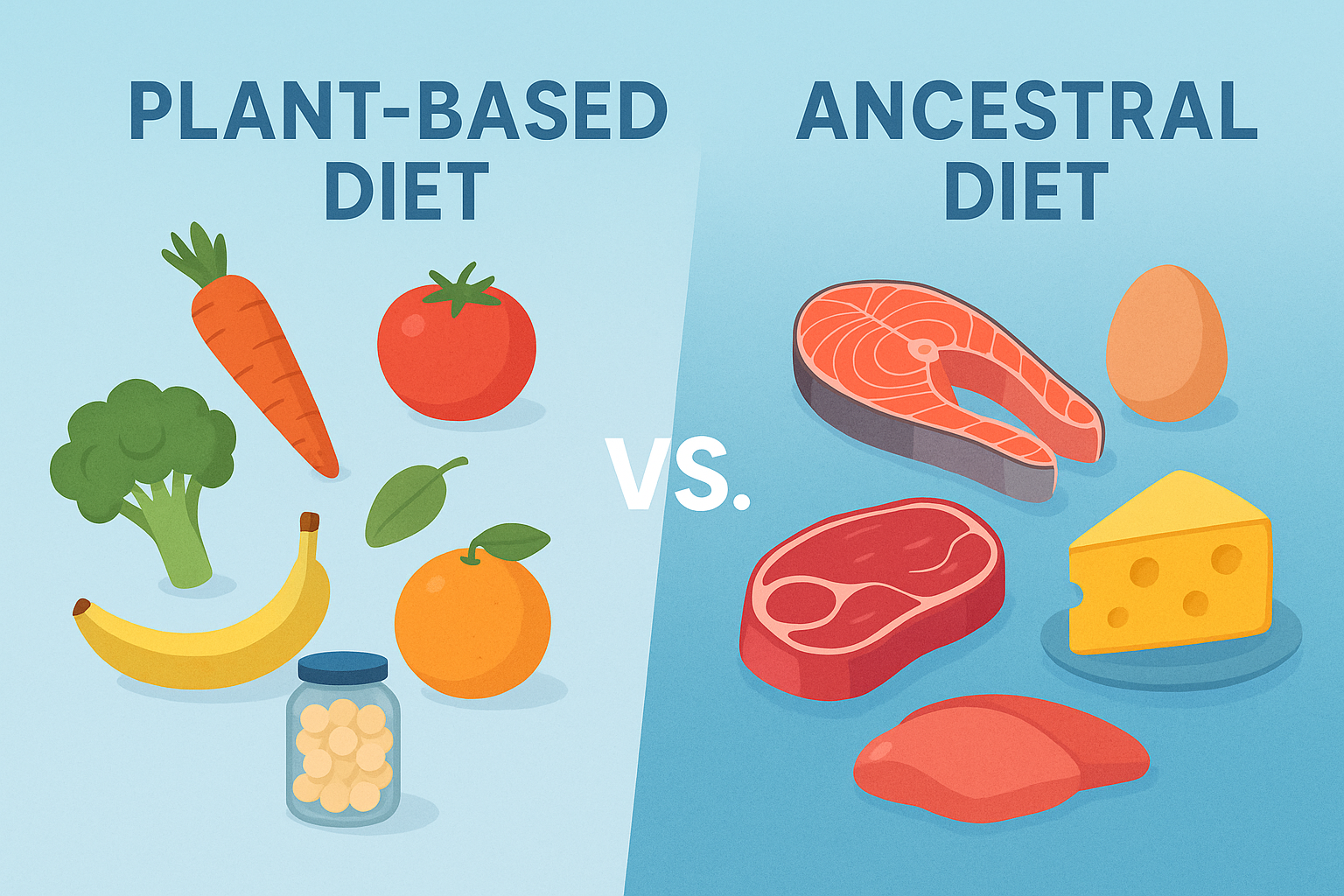In the world of health and wellness, few topics spark as much debate as nutritional paradigms. Two of the most discussed dietary approaches are plant diets vs ancestral diets. Both camps advocate for optimal health, yet their philosophies and practices differ significantly. Understanding the differences—and where they overlap—can help you make an informed choice about your nutrition.
What Is a Plant-Based Diet?
A plant-based diet emphasizes fruits, vegetables, whole grains, legumes, nuts, and seeds. While some variations allow for minimal animal products, most plant-based advocates recommend eliminating or strictly limiting meat, dairy, and eggs.
Common Plant-Based Diets:
- Vegan Diet – 100% free of animal products, focusing on plants only.
- Whole-Food Plant-Based (WFPB) – Eliminates processed foods while maximizing nutrient-dense, whole plant foods.
- Vegetarian Diet – Avoids meat but may include dairy and eggs.
Key Benefits: Research links plant-based diets with lower risks of heart disease, diabetes, and obesity. The abundance of fiber, antioxidants, and phytonutrients also supports gut health and longevity.
Potential Challenges: Plant-based eaters must carefully monitor nutrients like vitamin B12, iron, omega-3s, and protein to avoid deficiencies.
What Is an Ancestral Diet?
The ancestral diet is rooted in eating patterns believed to mirror those of early humans—high in nutrient-dense, minimally processed foods. It emphasizes animal proteins, healthy fats, and seasonal produce, while avoiding modern processed foods and refined sugars.
Common Ancestral Diets:
- Paleo Diet – Focuses on meats, fish, vegetables, fruits, nuts, and seeds while avoiding grains, legumes, and dairy.
- Keto Diet – Very low in carbohydrates, high in fats, with moderate protein to promote ketosis (fat-burning mode).
- Carnivore Diet – Almost exclusively animal-based, emphasizing meat, fish, and animal fats.
Key Benefits: Advocates claim ancestral diets improve metabolic health, balance hormones, and reduce inflammation. Many find success with weight loss, energy stabilization, and digestive improvements.
Potential Challenges: Restrictive nature may limit fiber intake, and long-term sustainability can be difficult. Critics also raise concerns about cardiovascular health if saturated fats are consumed in excess.
The Common Ground
Despite differences, both camps agree on eliminating highly processed foods, refined sugars, and artificial additives. Both encourage whole, nutrient-dense foods and mindful eating practices.
Which Diet Is Right for You?
The choice between plant-based and ancestral diets often depends on personal health goals, ethical beliefs, and cultural preferences. A plant-based diet may suit those focused on sustainability and reducing disease risk, while an ancestral diet may benefit individuals looking to stabilize blood sugar, reduce carb intake, and support metabolic health.
Final Thoughts
The debate between plant diet vs ancestral diets highlights one truth: there is no one-size-fits-all approach to nutrition. Both paradigms offer unique benefits, and the best diet is the one that supports your health, aligns with your values, and is sustainable long-term.
By exploring both approaches of a plant diet vs ancestral diet, you can discover the balance that works best for your body and lifestyle. At Aiello Family Health we believe it is a matter of trial and error and often many people find they are in the middle of both, which is probably the healthy balance. The most important diet is based off of unprocessed clean sources.
